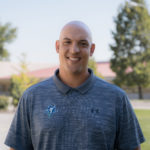Advising Maps
These advising maps are intended to assist faculty, professional advisors, counselors and career services staff with guiding students through an intended program or to compare multiple programs.
Please note that an Advising Map is only a tool to guide a greater advising conversation. The goal is to be transparent about program requirements and prerequisites, while using the tool to develop an individualized education plan for each student based on their math and English placements, what quarter they first enroll and other factors such as family or work schedules, commute, capacity to take online courses, etc.
Learn more about the different types of certificates and degrees here:
Transfer Degrees
Transfer degrees let you begin work on your bachelor’s degree and then transfer to a four-year university. Be sure to work with an advisor both at your community college and at the four-year institution you plan to attend.
Learn tips for transferring to a university.
When you earn a two-year Associate of Arts Direct Transfer Agreement degree, you can transfer to any public university in Washington state as a junior, with virtually all your general education credits fulfilled. Many independent colleges also accept these degrees.
These degrees are often abbreviated as AA-DTA. (The DTA stands for Direct Transfer Agreement.)
Big Bend and some other colleges call it the Associate of Arts and Sciences Direct Transfer Agreement (AA&S-DTA).
This is Washington’s most popular and most flexible transfer degree.
Do you want to major in engineering or science at a university? With this two-year degree, you’ll complete many of the math and science-related prerequisites before you transfer, setting you up for success. You can transfer to any public university in Washington state as a junior. Many private colleges also accept these degrees.
There are two degree tracks:
- Track 1 is for science students who wish to focus on biological and environmental/resource sciences, geology and earth science or chemistry.
- Track 2 is for students who wish to focus on engineering, computer science, physics or atmospheric science.
Be sure to work with your advisor to check the requirements for the specific major at the university you plan to attend.
Some transfer degrees help prepare students for a particular major, like business or nursing. These are called “Major-Related Programs” and are sometimes abbreviated DTA/MRP.
If you earn this type of two-year degree, you can transfer as a junior only if the community or technical college has an agreement with the university.
Work with your advisor to see if your college has an MRP agreement with the university you want to attend.
Professional-Technical Certificates and Degrees
Professional-technical certificates and degrees train students for specific fields — like nursing, computer science or advanced manufacturing — so they can go straight to work. The degrees do not transfer to four-year universities. (An exception is the Associate in Applied Science-Transfer degree, which transfers only if the university has an agreement with the specific community or technical college.)
Certificates provide you with a set of skills to find a job or stay current in your profession. Some examples are accounting, web design and medical assisting. Certificates typically take six months to one year.
Many certificates are designed to build on top of each other and eventually lead to a longer-term certificate or degree. These are called “stackable” certificates.
The Associate of Applied Science (AAS) degree is a two-year degree for students who want to start a career immediately after graduation. Examples include accounting, automotive, welding, and criminal justice.
These degrees do not transfer to a university.
Associate of Applied Science-Transfer (AAS-T) degrees are two-year, job-training degrees. They prepare students for immediate employment.
These degrees transfer only to:
- Applied baccalaureate degrees at community or technical colleges.
- Universities that have an agreement with the community or technical college issuing the degree.
Check with your advisor to make sure this is the right path for your transfer goals.
Some people get a non-transfer, professional-technical degree at a community or technical college and later decide they’d like to pursue a bachelor’s degree. Many community colleges now offer applied bachelor’s degrees so these students don’t have to start from scratch at a university. Instead, students can take two more years of upper-level coursework at the community or technical college to earn a four-year degree. With more and more employers requiring bachelor’s degrees, this option gives people another path to a four-year degree.
- BAS stands for Bachelor of Applied Science.
Other colleges also have different types of Applied Baccalaureate degrees.
- BSN stands for Bachelor of Science in Nursing.
- BAT stands for Bachelor of Applied Technology.
Advising Maps A-Z
Administrative Professional Services (AAS)
Ag Mechanic Technology Certificate
Ag Technology and Management (AAS) – Ag Business Emphasis (AAS) & Agronomy Emphasis (AAS)
Associate in Arts & Sciences (AA&S DTA)
Aviation – Commercial Pilot
Aviation Maintenance Technology (AAS)
Bachelor in Applied Management
Biology-Transfer (AS-T Track I)
Biology – Transfer (DTA MRP) starting Fall 2025
Chemistry – Transfer (AS-T Track I)
Computer Science – Systems Admin (AAS)
Computer Science – Transfer (DTA MRP)
Early Childhood Education (AAS) – WSU
Early Childhood Education (AAS-T) – EWU
Elementary Education
Engineering – Transfer (AS-T Track 2)
Manufacturing & Process Technology (AAS)
Manufacturing & Process Technology (AAS-T)
Medical Office & Billing Support Services (AAS)
Physics – Transfer (AS-T Track 2)
Pre-Nursing – Transfer (DTA MRP)
Social Work — (AA&S DTA for Social Work) — EWU
Welding – Pipe/Structural/Manufacturing (AAS)
Ed Plan Form Advising Map Correction Form Current Course Catalog ctcLink



